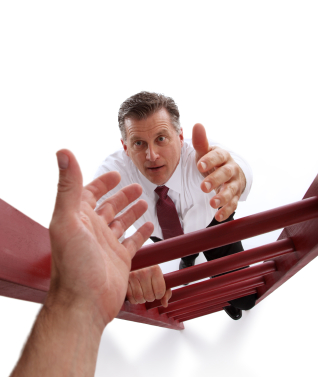The ” automatic stay ” protects you from your creditors while you’re in bankruptcy. Chapter 7 and 13 provide quite different protections.
Under Chapter 7 Bankruptcy
The automatic stay is the federal law that stops almost all creditors’ actions to collect their debts against you and/or your property, which goes into effect immediately when your bankruptcy case is filed. That’s essentially the same at the beginning of your bankruptcy case whether you file a Chapter 7 straight bankruptcy case or a Chapter 13 payment plan.
Your creditors are prevented from contacting you or taking any other collection action in Chapter 7 as long as your case lasts-about three months most of the time. In many situations, that’s all the protection you need. The discharge order legally writing off most or all of your debts is entered by the bankruptcy court right before the ending of the case. After the discharge creditors can’t chase those debts, so you no longer NEED the automatic stay for protection from them.
However, you might have certain kinds of debts which are NOT DISCHARGED. Some aren’t discharged because the law says they can’t be-such as for recent income taxes. Some are discharged but the liens from the debts remain on your property-such as a home or vehicle–and you have to pay the debt to keep the collateral.
In these situations you continue to owe the debt or have a lien remaining after the Chapter 7 case is completed and the automatic stay is no longer providing you protection from any such creditors. But you may not need any further protection. In the example of recent income taxes owed to the IRS or the California Franchise Tax Board, you could enter into a monthly installment payment agreement before your Chapter 7 case was finished. As long as you made the agreed payments on time, that would keep the tax authorities off your back. In the example of the vehicle creditor, you could enter into a reaffirmation agreement with that creditor, in which you “reaffirm” the debt, purposely excluding it from discharge in order to keep the vehicle. Your monthly payments keep your vehicle from being repossessed, just like a normal vehicle loan.
Under Chapter 13 Bankruptcy
The differences in automatic stay protection under Chapter 13 comes from the fact that the automatic stay can last so much longer, simply because a Chapter 13 case lasts so much longer than a normal Chapter 7 case. A Chapter 7 case lasts around three months, while a successful Chapter 13 generally lasts three to five YEARS. The automatic stay often provides protection from all the creditors throughout that time. With certain kinds of debts, this can create serious advantages.
The two examples mentioned above-the vehicle loan and the recent tax debt-demonstrate this.
If you owed more in income taxes than you would be allowed to pay in an installment plan, or you could not afford the payment required by the taxing authorities, Chapter 13 would very likely give you more time, lower payments, and much more flexibility. To illustrate, under Chapter 13 you would likely be able to delay paying the IRS anything for months or sometimes even a year or two if your plan funneled payments first to debts that were even more important. So you could pay little or even nothing towards the taxes until you first caught up on the arrearage on your house mortgage or back child support. You would just need to pay off the taxes within 5 years. Also, generally you would not need to pay any continuing tax penalties or interest, which would save money. And all this time you’d be protected from any tax collection.
If you’d fallen behind on the vehicle loan and then filed a Chapter 7 case, the creditor would likely require you to get current within a month or two after filing if you wanted to keep the vehicle. But under Chapter 13 very likely you’d have a few YEARS to slowly bring the account current, no matter what the creditor wanted. In fact under some scenarios you would never need to pay the missed payments. And you would be protected from you lender as long as you followed your court-approved plan.
The Bottom Line
The automatic stay protects you and your assets from creditors right away when you file either a Chapter 7 or Chapter 13 case. The automatic stay in Chapter 7 will accomplish what you need either 1) if you don’t owe any debts at all when your case is done, or 2) if you will be able to work things out with any remaining creditors. But if you need the protection from the automatic stay to last longer, then often Chapter 13 can buy you more time and more flexibility.

